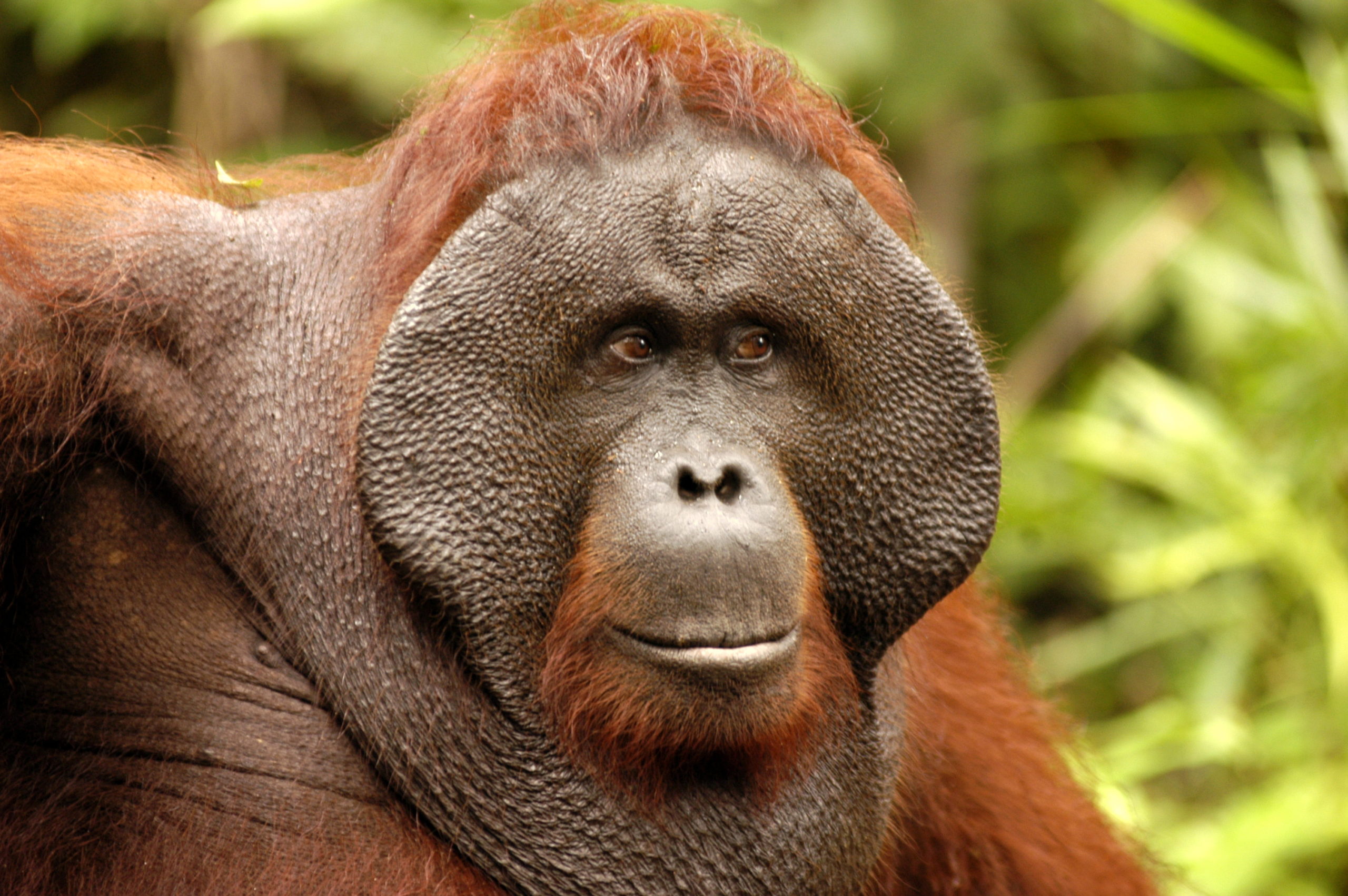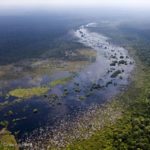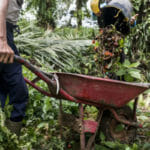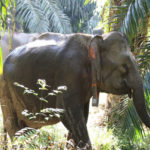
Support EcoJustice Radio with a Tax-Deductible Donation
Subscribe to EcoJustice Radio:
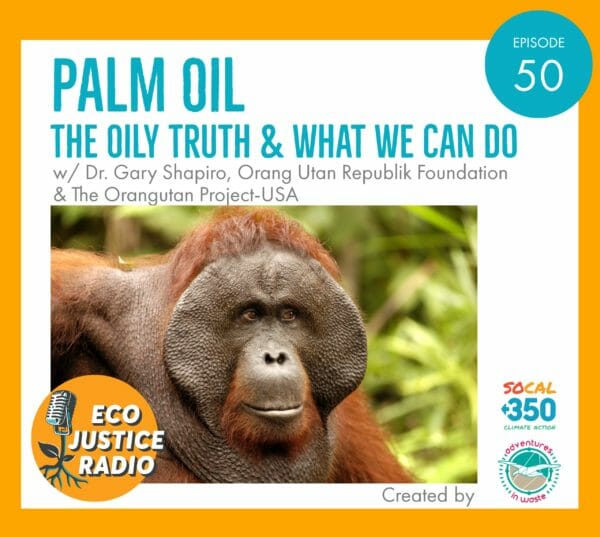
EcoJustice Radio: Global Palm Oil Excesses Compound Threats to Biodiversity
Text by Jessica Aldridge from Adventures in Waste
Palm Oil is touted as a “miracle ingredient,” found in more than 50% of all packaged products consumed in the US. It renders makeup smooth, keeps ice cream from melting, and moisturizes our hair and skin. It is a hot commodity; giving rise to plantations in Asia, Africa and Latin America. At 66 million tons annually and 10% of permanent global cropland, palm oil is a prevalent, economically appealing crop.
Although popular, the cultivation and expansion of this supposed cash crop can come at the expense of the Indigenous peoples, critical habitat, endangered species, and the climate. Almost 90% of the world’s oil palm is grown on a few islands in Malaysia and Indonesia, home to the most bio-diverse tropical forests found on Earth.
Can palm oil can be produced in a responsible, sustainable, and regenerative manner that protects the environment, bio-diverse species, and communities where it is cultivated?
On this episode, we discuss what is happening in Indonesia and elsewhere around Palm Oil extraction, expansion, and exploitation. Dr. Gary Shapiro has been involved with orangutans for 46 years and has been working to secure and protect the orangutan populations through creating more regenerative and equitable solutions around Palm Oil production.
STORY: An Orangutan’s Journey Though Palm Oil Killing Fields
We welcome Dr. Gary Shapiro, President of Orang Utan Republik Foundation & The Orangutan Project-USA.
https://www.orangutanrepublik.org/
https://www.theorangutanproject.org/
https://www.facebook.com/OrangUtanRepublik/
http://twitter.com/OURF
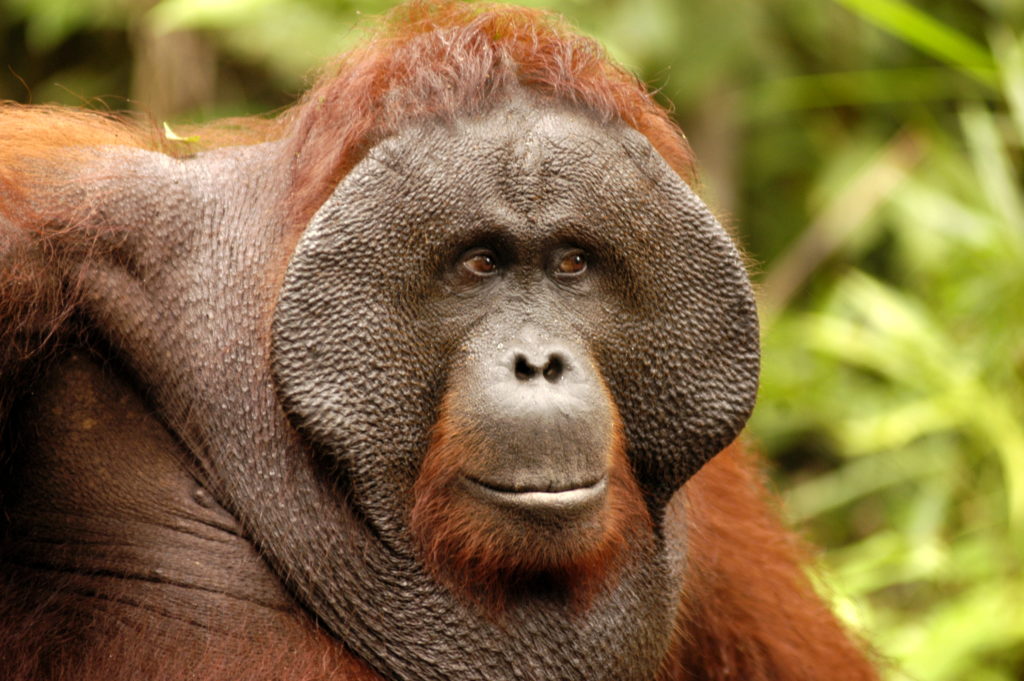

The Problem with This Miracle Ingredient
Vast monoculture palm oil plantations bring with them the clear-cutting and burning of forests. Resulting in the major release of carbon dioxide and other greenhouse gas emissions. In addition, peatlands in Asia are drained, cleared, and burned for palm oil development. These wetlands store more carbon per unit area than any other ecosystem in the world and when disturbed one hectare can release the carbon equivalent of burning 1 tanker truck full of gasoline.
Community farmers are incentivized and sometimes forced into these intensive, monoculture methods, however if the market drops this singular cultivation could throw them into bankruptcy. These methods also give way to soil pollution, erosion, and water and air contamination.
When the forests are cleared, it results in the forced migration of animals and increases human-wildlife interaction and conflict. Expansion can mean the destruction of the only habitat of the orangutans, Sumatran tigers and rhinos, and the Borneo elephants, and many more.
Generations of family-farms and indigenous people who inhabit and protect the land have been brutally driven from it.
When I am taking a shower, brushing my teeth, putting on lipstick, washing my clothes, maybe toasting bread or relaxing after a day of work with a piece of chocolate and a lit candle my first thoughts are not “how have these products contributed to the warming of the planet or the destruction of rainforest habitats, the murder of orangutans or the dissolving of indigenous livelihoods. Or maybe the increase in waste, (yeah this is a zero waste issue too) because people can no longer farm their own food forcing them into situations where they have to buy packaged goods.” I don’t think of these issues all the time. Many of us don’t. But, maybe we should.
Major corporations are internalizing the profits while externalizing the impacts, relying on consumers to be unaware and/or unable to buy alternatives. There are many nonprofit agencies, community led groups, and business that are working to change this reality.
Gary L. Shapiro, Ph.D. has dedicated most of his life to understanding and supporting the well-being of individual and populations of critically endangered orangutans through research, conservation, advocacy and education. He was the first person (1973-1975) to teach a symbolic communication system to an orangutan and the first person to have taught sign language to orangutans in their natural environment, the forests of Tanjung Puting National Park, Indonesian Borneo (1978-1980; 1981). Shapiro further assisted in the rehabilitation efforts of dozens of orangutans confiscated from the illegal pet trade and monitored the phenology of local rain forest ecosystem.
Shapiro received his doctorate in Zoology in 1985 from the University of Oklahoma then returned to Indonesian Borneo (1986) to conduct post-doctoral freshwater ecology studies in Tanjung Puting National Park. He spent 28 years as a government scientist and retired in 2014. Shapiro was the co-founder and vice president of the first orangutan support organization, the Orangutan Foundation International, from 1986-2004 where he administered and oversaw the activities supporting research and conservation in and around Tanjung Puting National Park. In late 2004, Dr. Shapiro and his Indonesian wife, Inggriani, were inspired to create the Orang Utan Republik Education Initiative (OUREI), a nonprofit project, in response to the education needs underscoring the Critically Endangered status facing orangutans today, particularly in Sumatra. In 2007, the Orang Utan Republik Foundation (OURF) was established as a legal organization to support the programs of OUREI in Indonesia. In 2015, OURF partnered with The Orangutan Project (TOP) to serve as their US chapter. Shapiro also serves on the board of TOP and administers the funds collected and distributed to dozens of organizations conserving orangutans.
Podcast Website: http://ecojusticeradio.org/
Podcast Blog: https://wilderutopia.com/category/ecojustice-radio/
Support the Podcast: https://socal350.org/contribute-to-socal-350-climate-action/
Hosted by Jessica Aldridge
Engineer: Blake Lampkin
Executive Producer: Jack Eidt
Show Created by Mark and JP Morris
Music: Javier Kadry
Episode 50
Photo Credit: Dammer Saragih
Updated 16 March 2023

